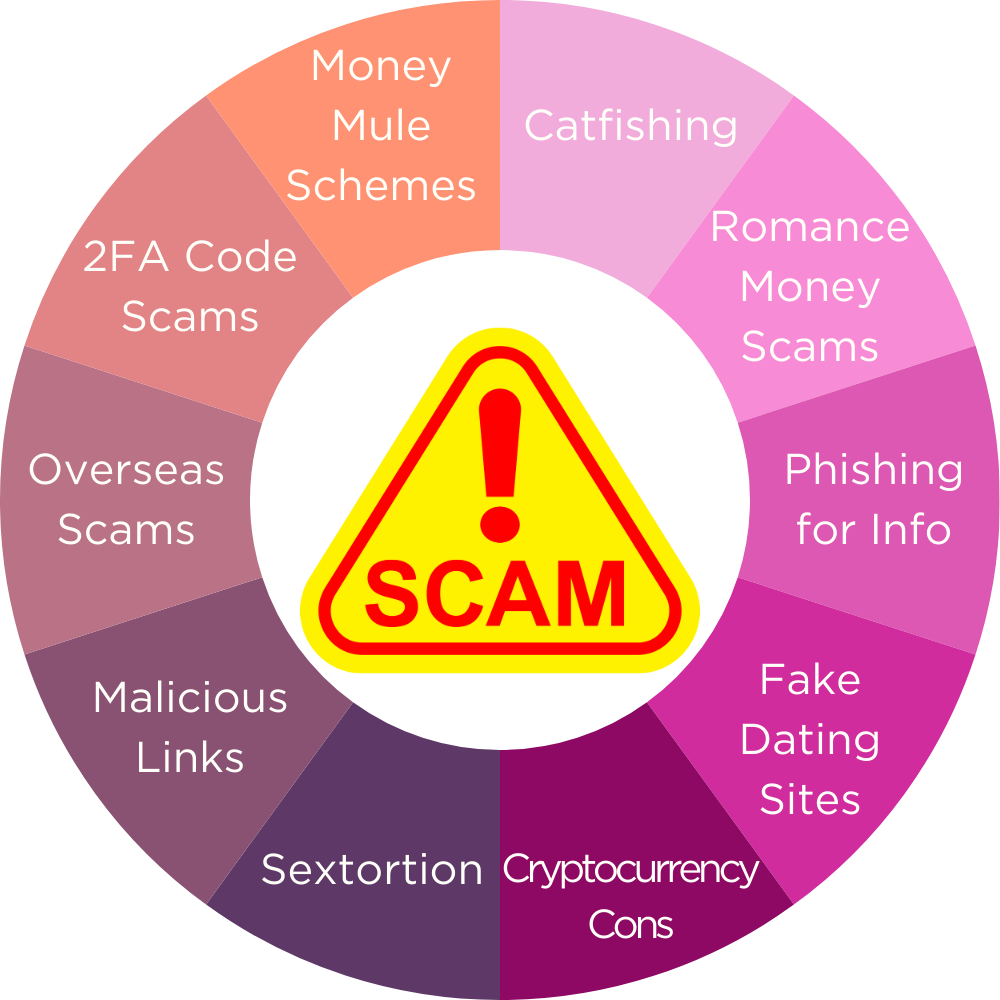Online Dating Scams: How to Protect Yourself from Fraudulent Activities

Online dating has become the go-to method for finding love, whether you’re looking for something casual or a serious relationship. But since the pandemic, things have gotten trickier. Believe it or not, 63% of daters now feel that finding romance is harder than it used to be. Despite this, dating apps remain popular, with 2 in 10 Americans using them, according to recent data.
But here’s the question: are these dating apps and sites really safe?
Sadly, not always. Scammers have their eyes on online dating platforms, using them for identity theft and financial fraud. Alarmingly, 50% of Americans who’ve used dating apps in the last five years report experiencing catfishing – a significant jump from 24% five years ago.
If you’re on the lookout for a partner, stumbling upon a scammer is the last thing you need.
Don’t worry, though. In this guide, we’re going to dive into the risks of online dating. We’ll show you how to spot a romance scammer and outline the most common scams out there. Plus, we’ll give you tips on how to steer clear of these digital pitfalls.
Best Reliable Dating Sites In 2024
How Do Online Dating Scams Work?
Online dating’s popularity has skyrocketed, and it’s not just the big names like Tinder, OkCupid, or Match.com. Now, there are all sorts of niche platforms catering to specific interests, from music tastes to food preferences. But with this rise comes a surge in online dating scams, and they often follow a predictable script.
Here’s how these scams typically unfold:
- Scammers make a fake profile and use photos stolen from someone else’s social media or dating profiles. This tactic, known as “catfishing,” involves posing as an attractive person to lure victims.
- Once they match with someone, scammers rush the relationship. They express love early on and suggest moving the conversation off the dating app to messengers like Snapchat, WhatsApp, or Telegram.
- Having gained trust, the fraudster begins to demand personal data, gifts or money. They create compelling stories, needing money for their children’s needs, for a medical emergency, or to get out of a crisis. They may even lure you into investing in shady cryptocurrency programs or signing up with questionable websites.
- Despite the ongoing “relationship,” scammers always have excuses to avoid meeting in person or video chatting. They might share a phone number but are mysteriously unavailable when you call.
- The scam can end in several ways, from phishing attempts to full-blown identity theft. Regardless, victims are often left embarrassed and out of any money or gifts they’ve sent.
Top 11 Online Dating Scams
Finding love online has become as common as liking a post on social media. From big names like Tinder to niche platforms for every interest, the dating world is at your fingertips. But this convenience comes with a catch: the rise of online dating scams. Let’s break down these scams, and I’ll give you the lowdown on avoiding these digital heartbreaks.

- Fake profiles using someone else’s photos to bait unsuspecting love-seekers. If those profile pics look too good to be true, they probably are.
Tip: Use a reverse image search to check if those photos are lifted from somewhere else. - The oldest trick in the book – scammers playing on your heartstrings to get cash or gift cards. They’ll cook up sob stories or emergencies, hoping you’ll open your wallet.
- Scammers are fishing for your personal details – think address, job, family info. They might even ask for your Social Security number or bank details, putting you at risk of identity theft.
- Some fraudsters lure you to fake dating sites loaded with bots and fake profiles, where you might end up sharing personal details or even credit card info.
- With crypto being all the rage, some scammers use long-term online relationships to trick you into dodgy crypto investments, leading to major financial losses.
- Scammers asking for sensitive photos or videos, and then threatening to leak them unless you pay up. Always be cautious about sharing personal media online.
- Similar to spam emails, malicious links scams involve sending links that can infect your device with malware or ransomware, or trick you into entering your login details on fake sites.
- Some play the role of overseas professionals or military personnel, using their supposed location as an excuse for not meeting and eventually asking for money.
- A newer trick – 2FA Code Scams. Scammers ask you to share your two-factor authentication codes, giving them access to your accounts.
- You’re unknowingly used to launder money. They might send you money to buy gift cards or foreign currency, putting you in a legally risky position.
How To Quickly Identify an Online Romance Scammer
Navigating the world of online dating can be tricky, especially with romance scammers lurking around. While these scammers have a bag of tricks, they often rely on the same old tactics. To figure out if you’re chatting with a scammer, consider these points:
- Does their profile seem like it’s straight out of a movie – great job, stunning photos, and a life that’s just a bit too polished?
- Are they constantly on the move or living abroad, yet super keen on starting something with you?
- Do they seem to be in a hurry to escalate the relationship, both emotionally and physically, and pressure you to do the same?
- Are they asking you for money, gifts, or any sort of financial favor?
- Do they always have a reason to avoid video calls, phone conversations, or meeting up?
- Have they brought up amazing investment opportunities, like cryptocurrencies or inheritances, that seem too good to be true?
- Are they always in some sort of emergency, needing your help to pay bills or sort out problems?
- Are they prying into your personal life more than usual?
- Do they want to move your conversation off the dating site to somewhere like WhatsApp?
- Are they asking you to demonstrate your affection or reliability in some way?
- Do they become pushy or argumentative if you start asking questions?
If you’re nodding ‘yes’ to any of these, there’s a chance you might be interacting with an online romance scammer. Stay alert!

How To Protect Yourself from Online Dating Scams
If you want to try online dating, safety should always be your top priority. Here’s how you can protect yourself when you’re looking for love online.
First, be aware of the personal information you provide. It’s about striking a balance – you want to be open enough to create a connection, but not so open as to compromise your safety. One smart move is to use photos that are different from the ones on your social media. This way, scammers won’t be able to track your other accounts easily. Also, be careful about the information you reveal in your profile and conversations. Avoid divulging your address, workplace details and other confidential information.
Another tip: keep your chats within the dating app. Scammers often try to transfer conversations to other platforms. If you do decide to talk on the phone, consider using a service like Google Voice for an extra layer of security. And remember, reports have shown that even sex offenders have used popular dating apps. So when it comes to meeting, choose public places and always put your safety first.
A little detective work can also help. If you’re really talking to someone, a quick Google search of their name and photos will help confirm their identity.
It is important to be cautious and skeptical, especially in the early stages. The first meeting in real life should always be in a public place – this is the first step to establishing trust. Be wary of anyone who talks about money problems, emergencies, or requests for favors, especially if you haven’t met them in person. These are big red flags.
Finally, protect your digital life. Even if a fraudster gets hold of some of your data, strong passwords, a password manager, and two-factor authentication can protect your accounts. It’s also a good idea to sign up for credit monitoring in case someone tries to access your financial information.







